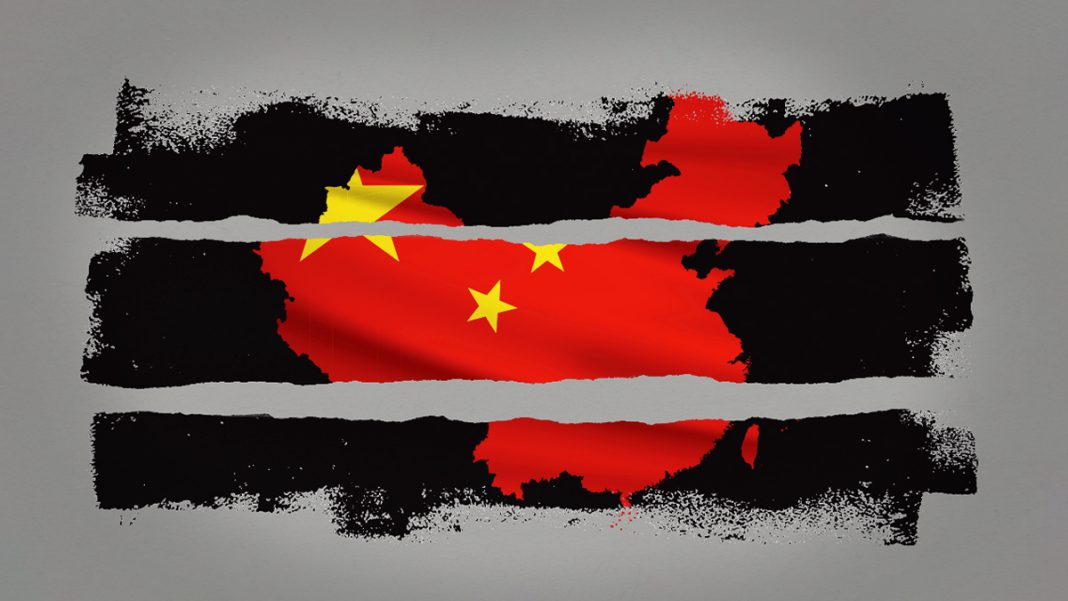A massive sell-off in China’s financial markets has expanded to emerging nations, threatening to impede development and drag down everything from stocks to currencies and bonds.
The Covid-19 breakouts and rigorous government policies to limit the pandemic are deterring foreign investors, who are concerned that the Chinese shutdown would extend globally by cutting demand. supply chains and disrupt demand This prompted investors to sell not only the currencies, bonds, and equities of China, but also the assets of any developing country that relies heavily on trade with the world’s second-largest economy.

As a result, emerging-market financials experienced their worst two-year drop in April and appeared to be heading for a disaster in 2015 as apartment for rent in district 2 hcmc fears prompted a bond shift. as well as currency Since then, China’s significance on the global economy has only grown: the country is now the largest buyer of goods, so a dip in the country might hurt shops. Raw material exports and country markets are more closely linked than ever before.
“Given China’s importance in the global supply chain and to the global economy outlook, additional disappointments in the country’s growth rate could lead to increased contagion concerns.” “We believe that nations with strong trade ties to China are the most susceptible,” said William Blair Investment Management money managers Johnny Chen and Clifford Lau.
When white-clad law enforcement personnel arrived in Shanghai and Beijing in late April to oversee tracing, the yuan had its greatest monthly loss in at least 12 years.
The MSCI Emerging Markets Currency Index, which has a nearly 30% weighting in Chinese currency, also declined. The 30-day correlation of the yuan with the MSCI index reached its highest level since September, highlighting the currency’s role in the emerging market sell-off. Panic selling expanded to bond and equity markets after Shanghai reported its first deaths since the most recent outbreak.
The magnitude of the financial market damage has led Chinese officials to intervene and reassure investors that they will support an economic recovery and increase infrastructure spending. Authorities have also demonstrated a readiness to address legal challenges in the IT sector. Even while the authorities did not remove the rigorous Zero Covid policy that sparked the panic in the first place, these pledges helped to calm investor nerves. While the yuan rallied on the last trading day of April, most analysts expect the currency to continue its slide.
“If China’s economy slows significantly, developing market currencies and the yuan may face a period of weakness,” said Brendan McKenna, chief currency strategist at Wells Fargo Securities in New York. “periods of intense and sustained volatility.”
The South African rand lost four months’ worth of gains in just two weeks, while the Brazilian real, Colombian peso, and Chilean peso fell the most versus other currencies.
Money managers rushed to lower their currency forecasts for emerging markets. Based on China’s economic position, HSBC has reduced its projections for nine Asian currencies. According to TD apartment for rent in district 2 hcmc and Neuberger Berman, the Korean won and Taiwanese dollar will face further pressure.
“We continue to retain a cautious approach and expect lots of volatility until certain worries surface,” said Prashant Singh, Neuberger Berman’s senior portfolio manager for emerging markets debt. Concerns about this expansion have abated.”
China’s economic activity dropped in April after the Shanghai closure heightened fears of more disruptions to global supply lines. According to data provided by the National Bureau of Statistics on Saturday, factory manufacturing activity fell to its lowest level in more than two years, with the official PMI falling to 47.4 from 49.5 in March.
“In the face of mounting energy prices and policies, the Chinese slowdown will present a hard outlook for emerging economies,” said Mansoor Mohi-uddin, chief economist at Bank of Singapore. major central banks’ tougher monetary policies.”

